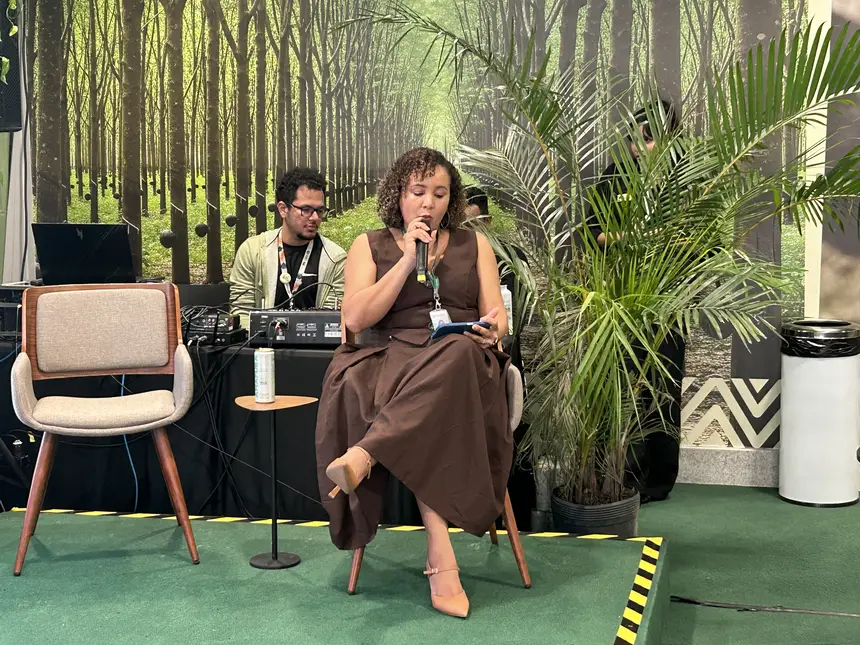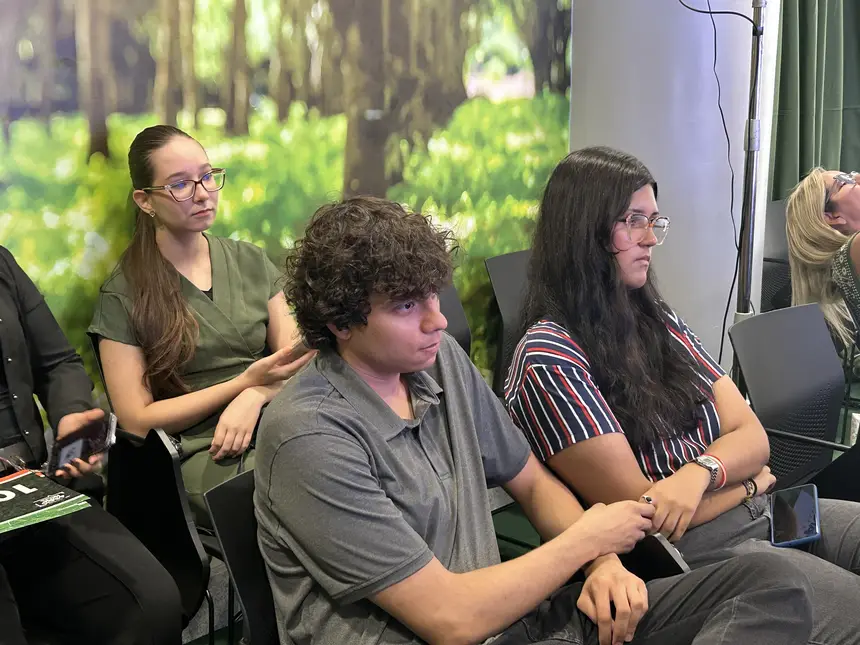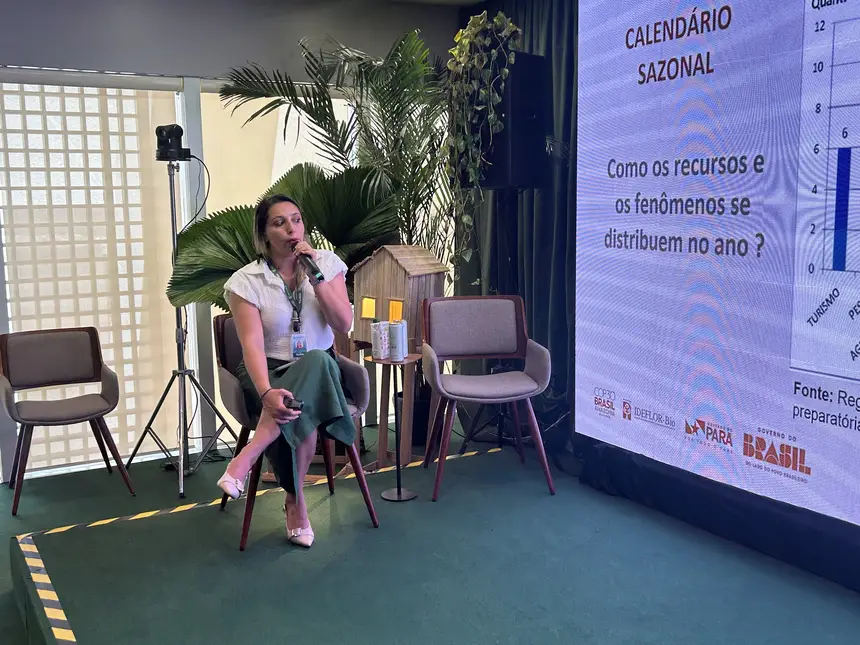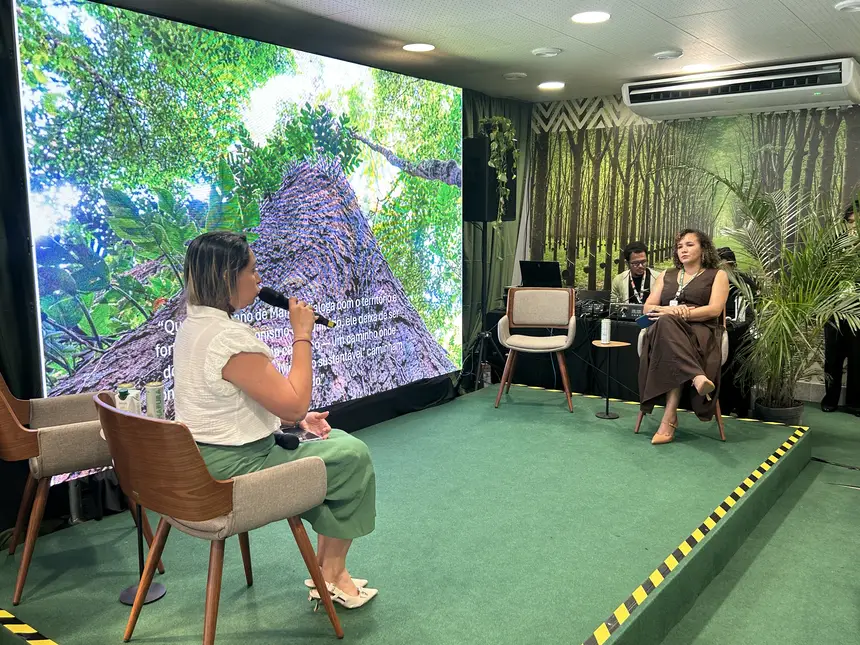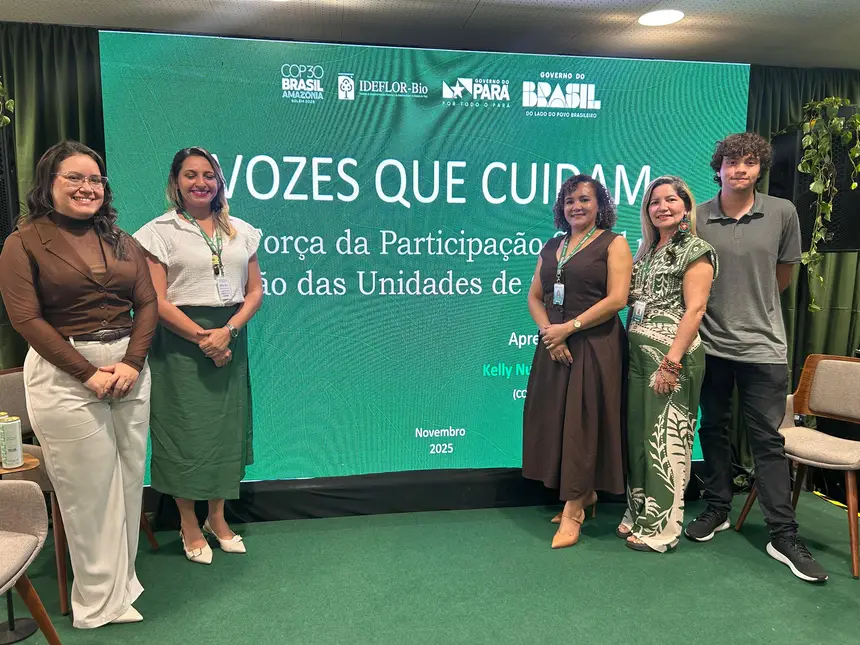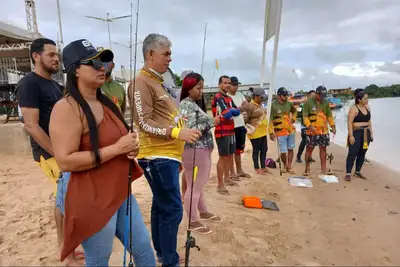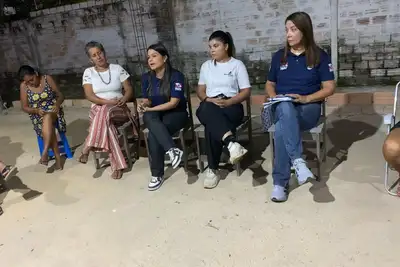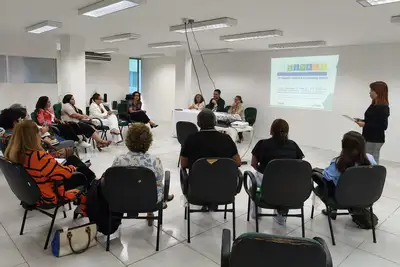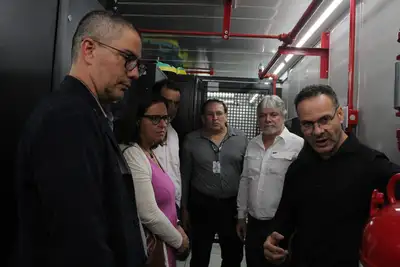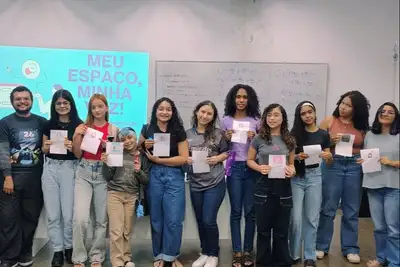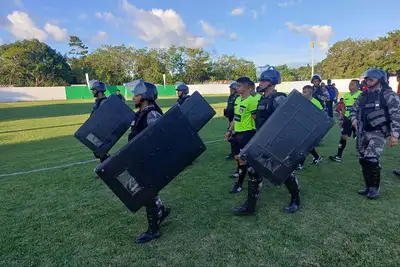Ideflor-Bio highlights the strength of social participation in the management of conservation units
In a panel at COP30, the Institute presented reflections, practical experiences, and concrete results on participatory processes in protected areas of Pará
With the theme "Voices that Care: The strength of social participation in the management of Conservation Units", the panel presented by the technical team of the Institute of Forest Development and Biodiversity (Ideflor-Bio), at the Pará Pavilion, in the Green Zone of COP30, on Thursday (20), brought together specialists, managers, and representatives from different territories to discuss how community involvement strengthens environmental governance. The session was led by the Institute's environmental analysts, Shislene de Souza and Kelly Nunes, who shared with the audience reflections, practical experiences, and concrete results on participatory processes in protected areas of Pará.
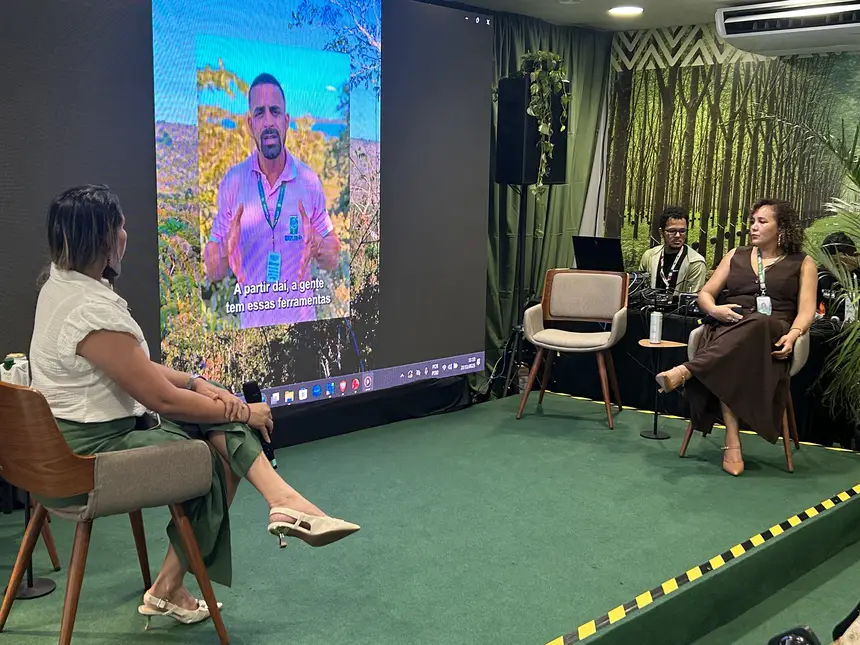
The activity was based on an essential premise: conservation units only achieve high effectiveness when their strategies are built by listening to those who live and interact with the forest. In this sense, the panel revisited the central concept that environmental care is a collective act, fueled by traditional knowledge, local perceptions, territorial agendas, and the articulation between the state and society.
The objective, according to the speakers, was to value social participation, discuss the role of communities in the sustainable use of natural resources, present co-management experiences, and foster dialogue among different actors to strengthen environmental governance.
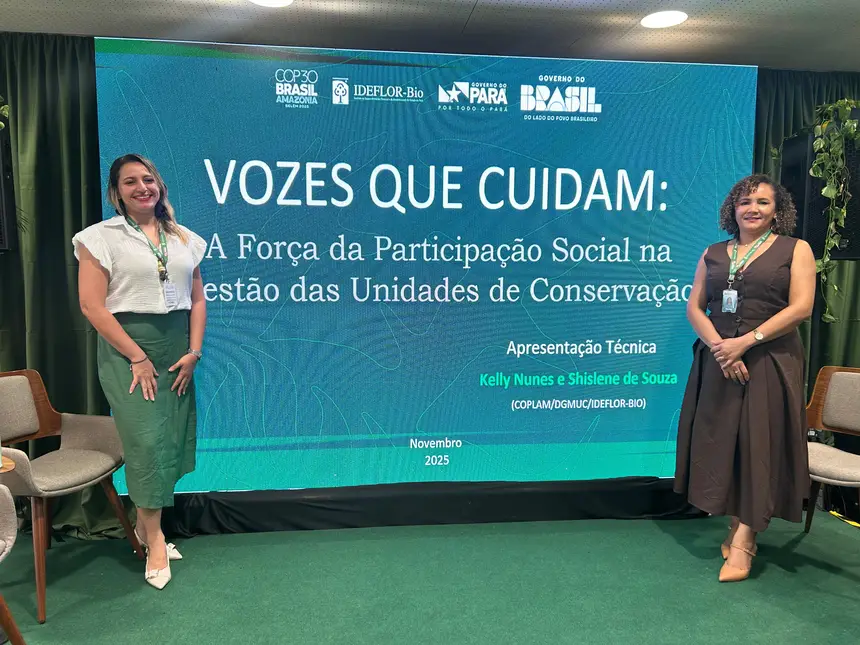
Community Participation - During her intervention, Kelly Nunes highlighted how the participatory methodology adopted by Ideflor-Bio has been transforming the construction of management plans for the UCs. "The community participates from the beginning to the end of the process. In the past, residents, social organizations, and even public agencies were heard in a very limited way. Today, they become protagonists in the drafting, moving from being spectators to directly influencing decisions," she stated.
She explained that the methodology inspired by the teams from the Chico Mendes Institute for Biodiversity Conservation (ICMBio) allowed for an open process, integrating technical and social views, and bringing legitimacy to the planned actions.
Kelly Nunes also emphasized internal changes within the Institute itself. According to her, there has been a significant advancement in technical performance, which has shifted from merely regulatory to becoming an active part of the plan construction. "Previously, a third-party company would create the entire document, and the technician appeared very little. Today, we are embedded in the community, understanding the real challenges of the conservation unit, discussing issues, and identifying, together with residents, ways to solve them. With the preparatory and main workshops, we managed to map partners, responsibilities, and opportunities for integrated action," added the analyst.
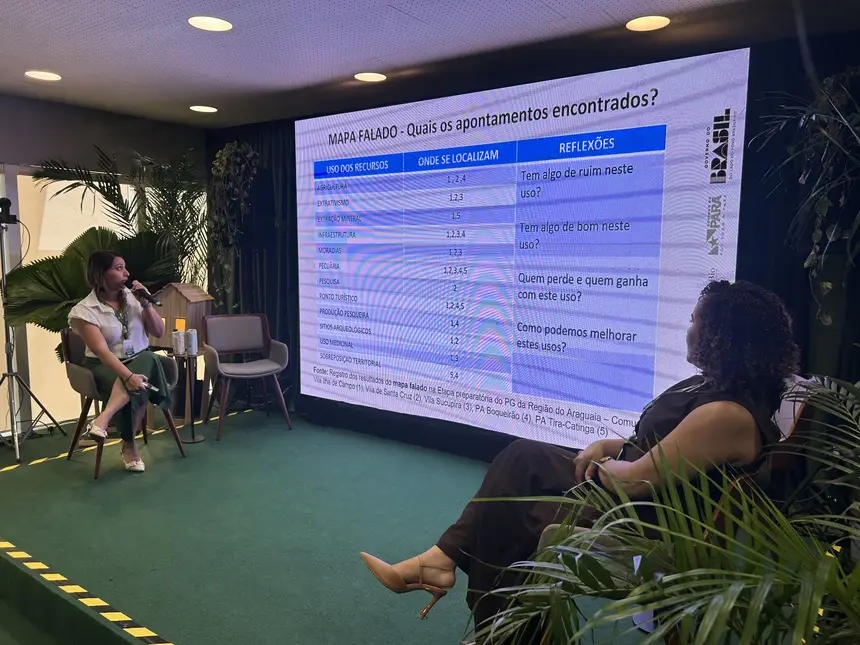
Experiences and Evidence - Shislene de Souza reinforced the importance of the results obtained from community participation in diagnostics. She explained that Ideflor-Bio has sought to bring to the center of the debate reports of experience and evidence collected directly in the territory. "The intention was to show how the management plans already begin to reflect what we have learned from the communities. The information that comes from these dialogues, data collections, and previous meetings has helped us make planning more accurate," she highlighted. For the environmental analyst, communities have proven to be "fundamental spokespersons" to guide priorities and indicate actions that make sense for local daily life.
The speakers also emphasized that recognizing the role of communities — indigenous, riverside, agricultural, student, or community — is essential to face economic pressures, resource scarcity, and structural weaknesses that still mark Brazilian UCs.
Participatory management, they stated, is directly aligned with the United Nations (UN) Sustainable Development Goals (SDGs), especially those related to climate, terrestrial life, and the construction of more effective and inclusive institutions.


